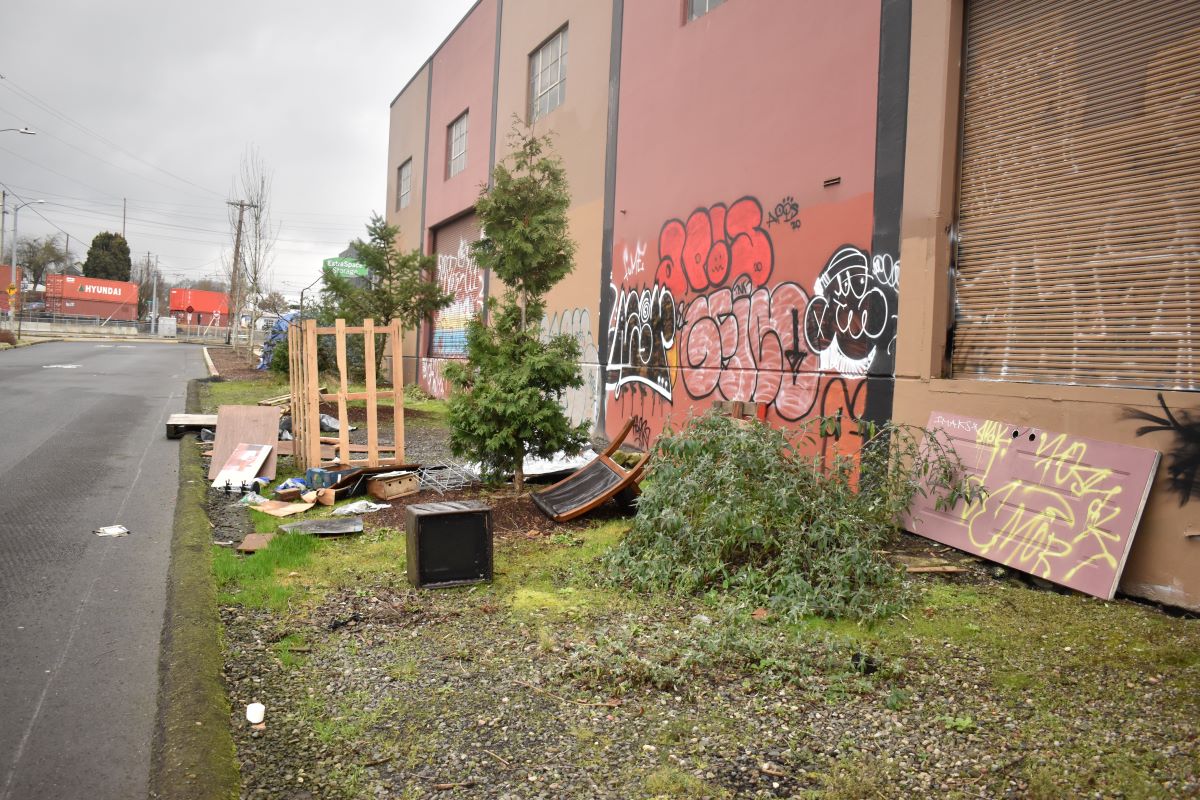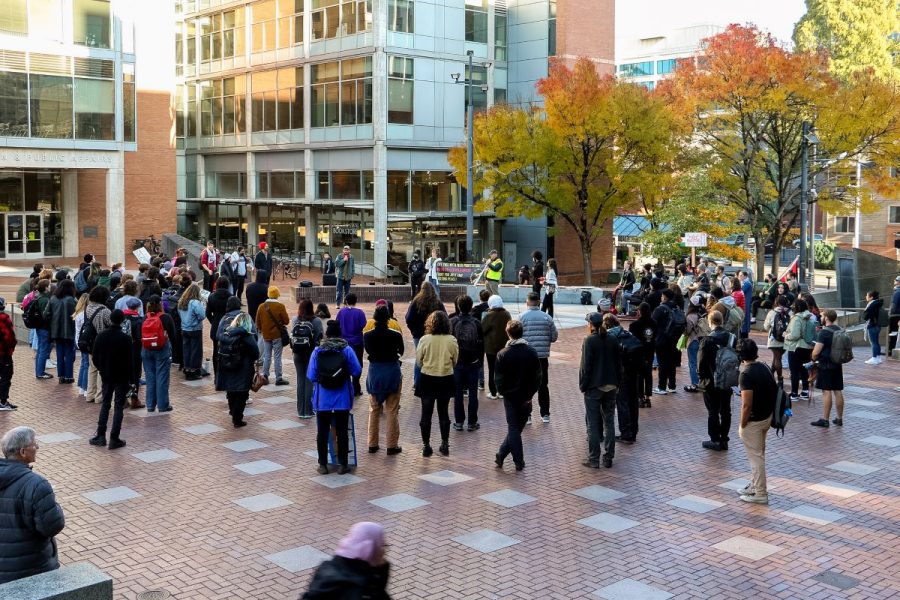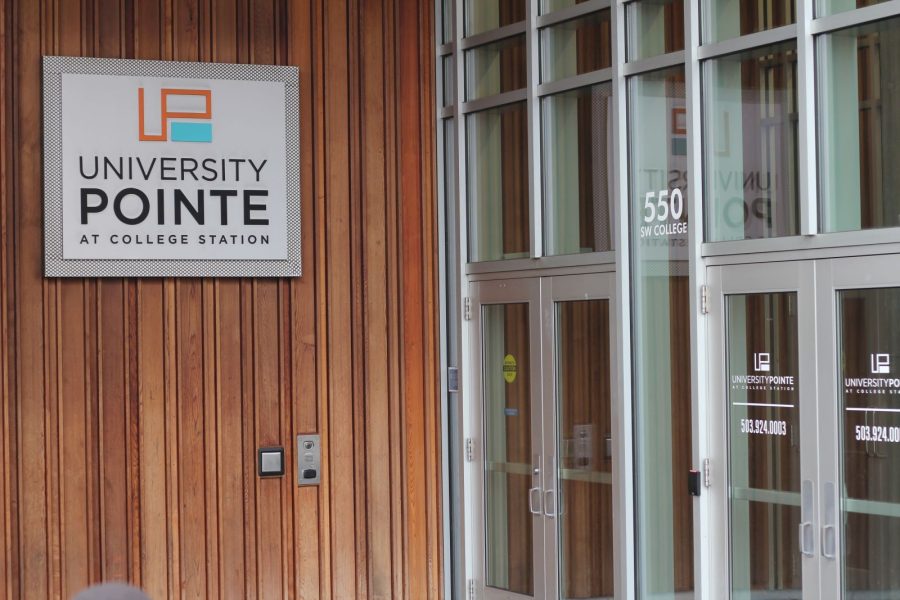You see it daily in Portland—trash piling up on the streets and litter covering sidewalks.
The easiest people to blame for all this litter are houseless people. Yet, are they really the cause of all the garbage throughout Portland? There’s more proof to the contrary.
The Oregonian reported that the housed population primarily contributes to the prevalent issue of overflowing trash in Portland, especially noticeable in houseless camps, rather than the houseless themselves.
The action taken by housed people needs to change because housed people dumping trash all around the city makes life less sanitary for everyone, especially the most vulnerable—those living on the streets.
Moreover, the perception must also change, given that houseless people are most affected by this issue and are also taking the blame unfairly.
It has become easy to blame and disrespect those who are houseless and some argue that these feelings towards houseless individuals stem from their visible presence on the sides of roads, often surrounded by garbage.
However, it’s crucial to reject this flawed perspective and recognize the fact that this is not a problem that stems from the houseless but from a deeper systemic issue.
The city of Portland reports that it is working to enhance waste management. This includes adding 150 new trash cans in underserved North Portland, upgrading older and smaller cans in neighborhoods and business districts, and working with contractors to promptly remove the debris near public trash cans while maintaining and repairing damaged containers.
Yet this project has remained a work in progress since 2022. The persistent problem indicates that the houseless population continues to bear the brunt of unsanitary conditions resulting from the city’s negligence. The city must expedite and intensify these efforts to swiftly address the issue and prevent further harm to the vulnerable, houseless community.
The city’s slow efforts are not only to blame. The Oregonian reports that Portland depends on an unconventional and fragmented sanitation system with nearly a dozen different agencies, each handling specific aspects of cleanup without prioritizing cleanliness as a primary goal.
This system was susceptible to failure even before the pandemic, and the system reached a breaking point amid the pandemic.
The current state of the city’s sanitation system underscores the urgent need for a more effective and efficient cleanup approach. Houseless people are human beings, not mere creatures leaving a mess. Judging them based on their living conditions oversimplifies the complex issues they face and perpetuates unfair stereotypes.
According to Angelica Thornton, in response to a worsening problem, Portland has removed dumpsters near houseless camps, given the excessive dumping of trash and unwanted items by housed individuals.
The blatant disregard for the environment around camps, as evidenced by the scattered trash, is a stark illustration of how the housed population treats the houseless as disposable. Dumping trash in their living spaces implies a dehumanizing view as if considering these areas designated for both trash and the people who reside there.
Addressing this issue requires holding the housed population in Portland accountable for their actions.
Moreover, rather than reducing resources such as dumpsters for campsites, there should be an expansion to meet the city’s growing needs, ensuring a more comprehensive approach which allows for easier and proper disposal of waste for all.
The depletion of resources poses a severe threat with potentially devastating consequences, notably evident in the downtown area’s insufficient and inaccessible bathroom facilities. Part of a more equitable approach requires recognizing that access to fundamental human rights—like clean spaces and bathrooms—is essential for all individuals.
According to Blair Best at KGW, the Multnomah County Health Department’s recent public health warning has emphasized the urgency of better access to accessible sanitation resources for the houseless population.
The warning documented a surge in Shigella cases in Portland’s Old Town district, affecting those living outdoors and in shelters. “Shigella is highly contagious and spreads through fecal matter,” Best’s article stated. “Symptoms include diarrhea, fever, stomach cramps, and sometimes vomiting, and can last three to 10 days.”
This lack of bathrooms shows the increased risk of diseases in a highly populated area that is underserved. The reality that there is a virus spreading through fecal matter throughout downtown Portland is concerning, considering how, “bathroom access [for the houseless] is something that can require traveling miles on foot, especially for women or people with disabilities,” stated the Blanchet House, a non-profit working with the houseless in Old Town. “People experiencing homelessness can lose out on opportunities because they must prioritize satisfying a basic need. And, lack of hygiene is so degrading to self-image.”
The heightened health risks, exemplified by the increased Shigella cases downtown, emphasize the need for the housed population to acknowledge their contribution to the dire lack of sanitary conditions for the houseless.
Tackling this issue demands a collective commitment to ensuring the well-being and dignity of every community member.
We must treat the houseless with dignity and humanity and ensure that we do not relegate them to the status of discarded trash left in the gutter.






